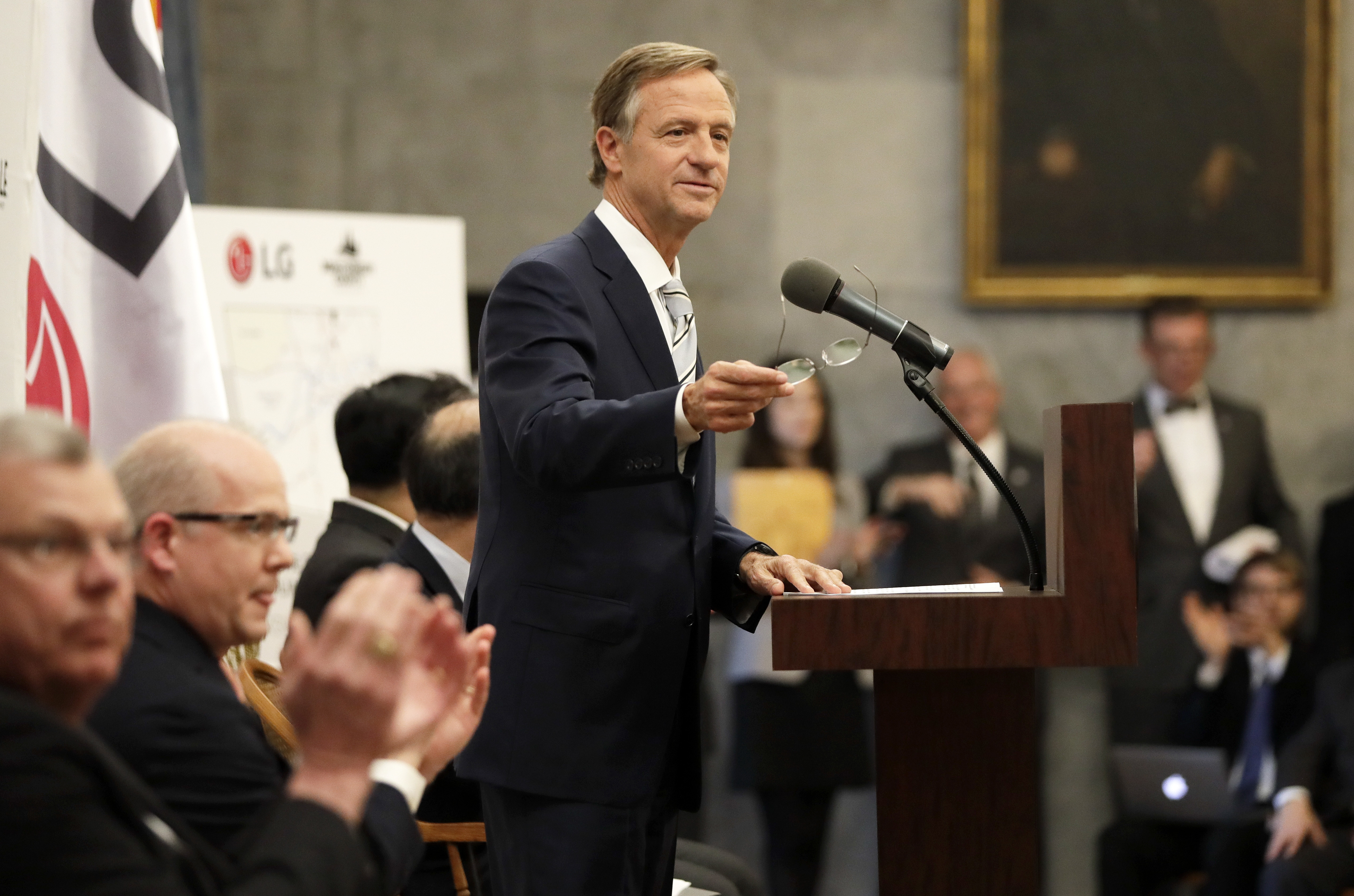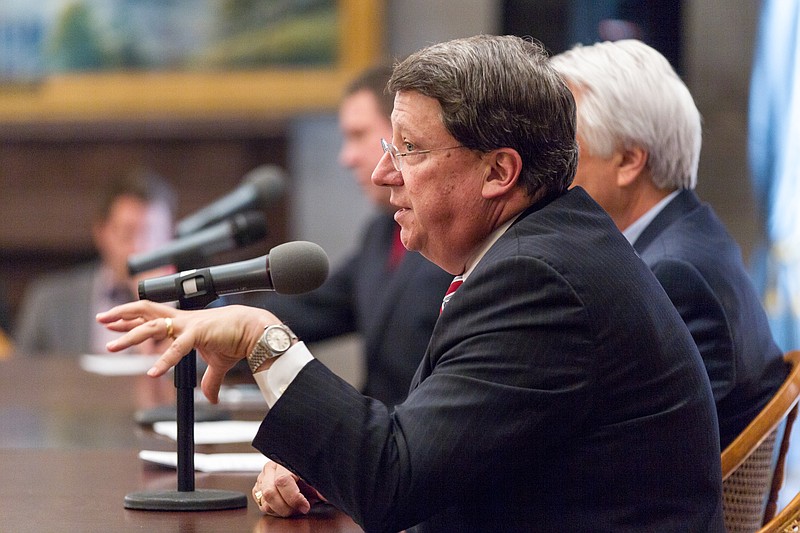NASHVILLE - The Tennessee Senate Transportation Committee today approved a retooled version of Republican Gov. Bill Haslam's roads program, shaving off the amount of fuel tax increases it calls for and boosting the amount of commensurate cuts to the state's 5 percent tax on groceries
Senate Majority Leader Mark Norris, R-Collierville, pitched the changes, saying it was based on an agreement he and Haslam reached last when Haslam's plan stalled in the House Transportation Committee.
"The compromise we reached over the weekend was to focus just on the food tax, the grocery tax," Norris said, noting that the new plan calls for reducing the 5 percent sales tax on food to 4 percent, a 20 percent cut that benefit anyone in Tennessee who purchases groceries.
 Tennessee Gov. Bill Haslam speaks during an announcement Tuesday, Feb. 28, 2017, in Nashville, Tenn. It was announced that South Korean appliance maker LG Electronics Inc. has selected Clarksville, Tenn., as the site for its washing machine plant in the United States. The 829,000-square-foot facility is projected to cost $250 million and create 600 new jobs. (AP Photo/Mark Humphrey)
Tennessee Gov. Bill Haslam speaks during an announcement Tuesday, Feb. 28, 2017, in Nashville, Tenn. It was announced that South Korean appliance maker LG Electronics Inc. has selected Clarksville, Tenn., as the site for its washing machine plant in the United States. The 829,000-square-foot facility is projected to cost $250 million and create 600 new jobs. (AP Photo/Mark Humphrey) 
The Senate panel passed the amended version on a 7-1 vote, moving it on to the next committee.
The bill reduces Haslam's proposed 7 cents per gallon increase on gas and 12 cents on diesel. Instead, it proposes a five cent gas increase and 10 cent increase for diesel, both of which would be phased in over a three year period.
Norris said he believed it was important that most Tennesseans get more in the way of tax relief than the increase in prices at the pump.
Haslam had originally proposed cutting several non-highway taxes that support the state's general fund, given huge budget surpluses there.
The governor had proposed trimming sales tax on groceries, but only by 4.5 percent. Under the new proposal, that would go down to 4 percent beginning July 1 when the new budget year takes effect.
The plan continues to keep Haslam's recommended reductions in franchise and excise taxes on manufacturers by about $113 million.
The proposal trims Haslam's proposed decrease in the state's 6 percent Hall Income Tax on interest and dividend income. Haslam had originally proposed taking it down to 4.5 percent. Instead, it will be lowered to 5 percent.
Service-disabled veterans and the elderly, however, would benefit. They would see a boost in a state program that provides some relief on their local home property taxes.
As for the fuel tax increases, the deal would increase gas by 4 cents the first year and an additional one cent in the 2019 and 2020 budget years. Tennesseans currently pay 18.4 cents per gallon.
Diesel, meanwhile, would increase by 4 cents per gallon in the new budget year taking effect this July 1. It would go up another 3 cents in the 2019 budget year and a final 3 cents in the 2020 budget year.
The compromise also eliminates Haslam's proposal to index future fuel tax increases to the rate of inflation, as measured by the Consumer Price Index.
Norris explained to the committee that one of the concerns was to get the tax relief at or greater than fuel tax increases for the largest number of Tennesseans.
